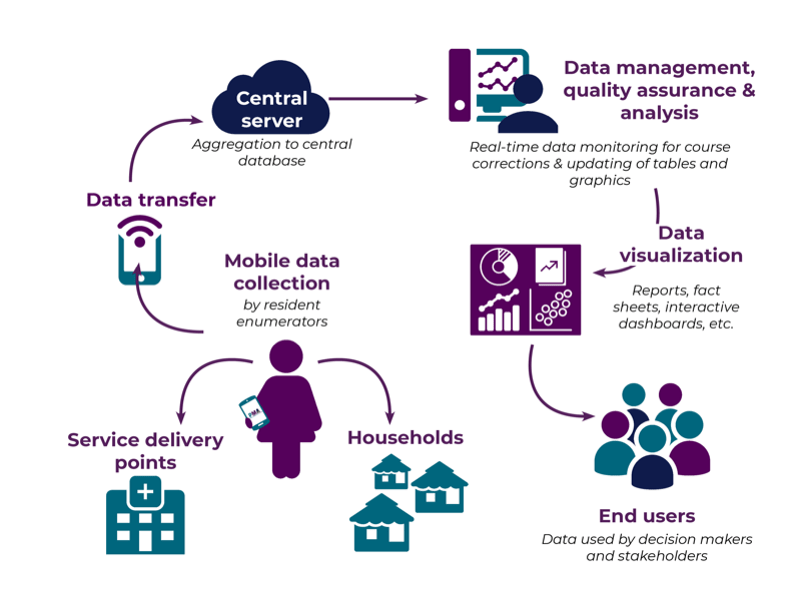PMA uses innovative mobile technology to support high-quality, rapid-turnaround surveys monitoring key health and development indicators that may be used to inform health policy and programming decisions.
PMA collects nationally and sub-nationally representative samples of data from households and service delivery points in selected sentinel sites, to estimate health indicators on an annual basis in nine pledging FP2020 countries.
Surveys are completed and uploaded to a central server via a mobile data network, cleaned and analyzed. Results are disseminated shortly after.
PMA questionnaires capture information on many key family planning indicators including demand and utilization, as well as new unique measures of access, choice and quality of family planning information and services; and other health indicators.
PMA Public Analysis Repository
The STATA .do files available in the PMA GitHub repository will create the Excel file output that PMA2020 and PMA use to generate the briefs, using the Household and Female, and Service Delivery Point Datasets that are publicly available.
Please note: Data presented in the online briefs represent preliminary results. Therefore, there may be slight differences between the .do file results and those in the brief. Please access DataLab to cross check any discrepancies and get the final estimates.
IPUMS-PMA
IPUMS-PMA harmonizes the Performance Monitoring for Action (PMA) data series. It provides an interactive web dissemination system for PMA data with variable documentation on hundreds of harmonized variables on family planning, water and sanitation, and menstrual hygiene management. IPUMS provides census and survey data from around the world integrated across time and space. IPUMS integration and documentation makes it easy to study change, conduct comparative research, merge information across data types, and analyze individuals within family and community context. Data and services available free of charge.
